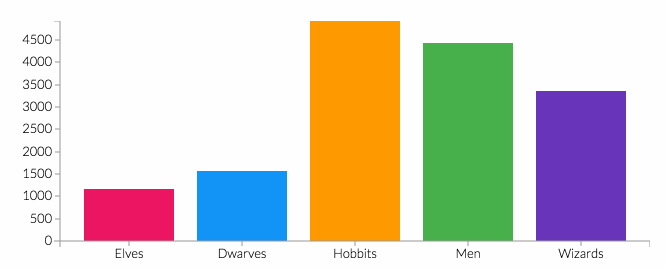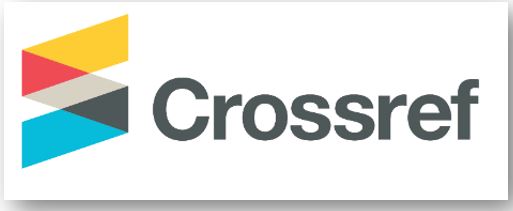Kecerdasan Finansial Anak Usia Dini melalui Pola Pembiasaan Transaksi Terbatas
DOI:
https://doi.org/10.61231/jie.v1i1.80Keywords:
financial intelligence, early childhood students,limited transaction management habits, Financial Intelligence, Early Childhood Students,Limited Transaction Management HabitsAbstract
This research tries to observe how RA Al Hidayah implemented the financial intelligence towards their early childhood students through limited transaction management habits. This research used descriptive qualititave method. Etnography study was used to analyze the data obtained. The research subject was all of early childhood students and the teachers in RA Al Hidayah Kediri. The data was collected through interview, observation and selfreport. The result of the study has shown that it was not succesfully implemented because it still requires a variety of instruments, ranging from varied methods, educational tools specifically for financial intelligence, and the creativity of educators in processing activities and materials and the biggest obstacle is minimal parental involvement, thus requiring two-way communication with parents and existing stake holders to succeed this.References
Adnia Rianti Pradita, Della Mustika, Tunny Nur Ainny, Ani Nur Aeni. 2022. “Penggunaan E-Book Ass ( Anak Sholeh Sholehah ) Untuk Meningkatkan Perilaku Hemat Dalam Kehidupan Sehari – Hari Untuk Siswa Sekolah Dasar Universitas Pendidikan Indonesia Abstrak Pada E.” 16(5): 1744–51.
Ahmad Maulidizen, Ahlijati Nuraminah, Hafizh Al Karim, Khairunisa Arini Syaputri, Kinanti Fitri Purnama, Muhammad Rafi Thoriq, Rabiatul Awalia. 2022. “Financial Intelligence For Children Of The Quran House Community Bogor.” Kreatif: Jurnal Pengabdian Masyarakat Nusantara 2(2): 67–75.
Amah, N., & Sari, N. E. 2017. “Permainan Poli Dana Untuk Menumbuhkan Kecerdasan Finansial Pada Anak Usia Dini.” Jurnal CARE (Children Advisory Research and Education) 4(2): 31–40.
Arif Widodo, Abdel Rahman El Sayed Elsayed Abdel Ghaffar Balah, & Siti Afifah. (2023). Development of Imla` Teaching Materials in Improving Ability to Write Arabic Texts. International Journal of Language and Teaching, 1(1), 37–51.
Ellitan, Lena, and Yulius Koesworo. 2020. “Penguatan Kecerdasan Finansial Untuk Menekan Budaya Konsumtif Bagi Mahasiswa Anggota Persatuan Mahasiswa Katolik Republik Indonesia (Pmkri) St. Lucas Surabaya.” PeKA: Jurnal Pengabdian Kepada Masyarakat 3(1): 22–31. https://doi.org/10.33508/.v3i1.2842.
Fahmi, N. (2023). Problems of Writing Arabic Related to Changes in Arabic Syntax and Morphology. International Journal of Language and Teaching, 1(1), 1–8.
Kustina, F. (2023). Fikih Wanita dan Pemahaman Remaja Putri di Pondok Pesantren Sunan Drajat. Multidisciplinary Journal of Education , Economic and Culture, 1(1), 41–51.
Kartini, A., Aminah, M., & Hasanah, A. 2022. “Meningkatkan Kecerdasan Finansial Anak Usia Dini Melalui Metode Bermain Peran Makro.” Jurnal Edukasi Generasi Emas 1(01): 81–94.
Krisdayanthi, Astrid. 2019. “Penerapan Financial Parenting (Gemar Menabung) Pada Anak Usia Dini.” Pratama Widya?: Jurnal Pendidikan Anak Usia Dini 4(1): 1.
Miftachul Ulum, & Abdul Mun’im. (2023). Leadership and Performance of Teachers and Employees of SMK Sunan Drajat Lamongan. Multidisciplinary Journal of Education , Economic and Culture, 1(1), 1–12.
Mahmud, A. M. A. (2023). Aspects of renewal in the rhymed poem In the collection of "Jarrar al-Nour" For the poet "Abdel Nasser Abdel Mawla". International Journal of Language and Teaching, 1(1), 9–18.
Moch. Mukhlison, & M Futukhul Arif. (2023). Pendidikan Life Skill dan Kemandirian Santri Dalem Pondok Pesantren Haji Ya’qub Lirboyo Kediri. Multidisciplinary Journal of Education , Economic and Culture, 1(1), 52–64
Munafiin, N. 2016. “Kecerdasan Finansial Dalam Qur’an.” (Doctoral dissertation, UIN Sunan Kalijaga) 147(March): 11–40.
Nurhafizah, Nurhafizah. 2018. “Bimbingan Awal Kewirausahaan Pada Anak Usia Dini.” Jurnal Konseling dan Pendidikan 6(3): 205–10.
Parlian, Oni, and Muhammad Ali Adriansyah. 2022. “Kecerdasan Finansial Dengan Tren Gaya Kepemimpinan Anak Muda Yang Berwirausaha.” Psikoborneo: Jurnal Ilmiah Psikologi 10(1): 1.
Roihanatul Ainak, & Alifia Nur Indah Sari. (2023). The Influence of Guess Word Game Media on Mastery of Mufrodat Arabic. International Journal of Language and Teaching, 1(1), 19–26.
Rapih, S. 2016. “Pendidikan Literasi Keuangan Pada Anak: Mengapa Dan Bagaimana?” Scholaria: Jurnal Pendidikan dan Kebudayaan 6(2)(235): 14–28. http://digilib.unila.ac.id/4949/15/BAB II.pdf.
Romadiastri, Yulia. 2016. “Membangun Kecerdasan Finansial Dengan Matematika Keuangan.” Phenomenon?: Jurnal Pendidikan MIPA 1(1): 99–113.
Saputro, Muhamad Andri, Yahdi Siradj, and Tafta Zani. 2021. “Belajar Kecerdasan Finansial Melalui Aplikasi Permainan Visual Novel Learn Financial Intelligence Through Visual Novel Game App.” Telkomuniversity 7(5): 2204–16. https://openlibrarypublications.telkomuniversity.ac.id/index.php/appliedscience/article/view/15531.
Sari, Dian Anita. 2015. “Financial Literacy Dan Perilaku Keuangan Mahasiswa (Studi Kasus Mahasiswa Stie ‘YPPI’ Rembang).” Buletin Bisnis & Manajemen 1(2): 171–89. http://www.journal.stie-yppi.ac.id/index.php/BBM/article/view/14/14%0Ahttps://www.researchgate.net/publication/320009228%0Awww.cnnindonesia.com.
Sari, Novita Erlina, Endang Sari Maruti, Dila Fitriyani, and Arden Diah Ayuningrum. 2021. “Penguatan Kecerdasan Finansial Anak Di Masa Pandemi Dengan Glass Bank.” Jurnal Edukasi 1(1): 81–90.
Mulyadi, S., & Trizki, L. (2012). Financial Parenting: Menjadikan Anak Cerdas dan Cermat Mengelola Uang. Noura Books
Sina, Peter Garlans. 2014. “Peran Orangtua Dalam Mendidik Keuangan Pada Anak (Kajian Pustaka).” Jurnal Pengembangan Humaniora 14(1): 74–86.
Warsono. 2010. “Prinsip-Prinsip Dan Praktik Keuangan Pribadi.” Jurnal Salam 13(2): 137–52.
Widyawati, I. 2009. “Faktor-Faktor Yang Mempengaruhi Literasi Finansial Mahasiswa Fakultas Ekonomi Dan Bisnis Universitas Brawijaya.” Assets: Jurnal Akuntansi dan Pendidikan 65(10): 89–99. parental socioeconomic status, education, family financial management, teaching in colleges, financial literacy.
Downloads
Published
Issue
Section
License
Copyright (c) 2023 Binti Su'aidah Hanur, Binti Najichah

This work is licensed under a Creative Commons Attribution 4.0 International License.
You are free to:
- Share — copy and redistribute the material in any medium or format for any purpose, even commercially.
- Adapt — remix, transform, and build upon the material for any purpose, even commercially.
- The licensor cannot revoke these freedoms as long as you follow the license terms.
Under the following terms:
- Attribution — You must give appropriate credit , provide a link to the license, and indicate if changes were made . You may do so in any reasonable manner, but not in any way that suggests the licensor endorses you or your use.
- No additional restrictions — You may not apply legal terms or technological measures that legally restrict others from doing anything the license permits.
Notices:
You do not have to comply with the license for elements of the material in the public domain or where your use is permitted by an applicable exception or limitation .
No warranties are given. The license may not give you all of the permissions necessary for your intended use. For example, other rights such as publicity, privacy, or moral rights may limit how you use the material.














